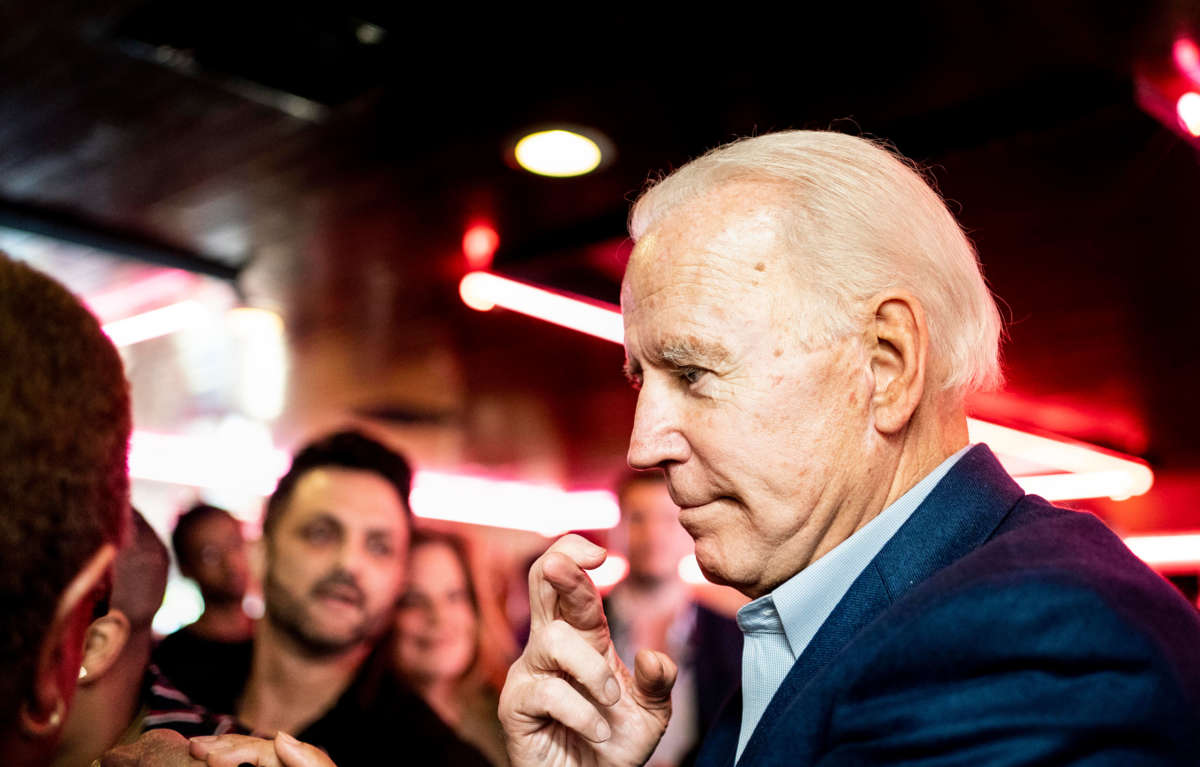As the primaries heat up, some of the states most severely impacted by opioid overdose deaths — West Virginia, Ohio, Maryland, Michigan, Kentucky, Connecticut and Rhode Island — will be heading to the ballot box. At first glance, both Joe Biden and Bernie Sanders appear to advocate a compassionate response to the overdose crisis, which is the leading cause of death for adults under 55. In reality, however, Biden’s plans contain provisions that would endanger people who use drugs and perpetuate their criminalization.
Biden recently released a detailed plan for addressing the opioid crisis, which has garnered praise from some quarters for its length and comprehensiveness. However, just because a plan is long does not mean it actually solves the issue it is confronting. Biden’s plan does contain some hopeful language about taking on drug manufacturers (although his history of support for — and donations from — Big Pharma may not inspire confidence on this front). However, his policies directed at drug users leave much to be desired. Biden’s emphasis on drug courts, his lack of support for crucial harm reduction measures, his refusal to get behind Medicare for All and his record of fueling the drug war threaten to worsen the criminalization of people who use drugs and to exacerbate the opioid crisis.
Biden’s plan seeks to divert more people from regular court to drug court at the federal level. It also gives states incentives to divert people to drug court, and increase funding for drug courts. This emphasis on drug courts is the wrong approach. For all their good intentions, these courts are based on the flawed logic of prohibition: keeping certain drugs illegal and criminalizing those who use them, even if they’re sentencing people to treatment instead of prison.
Forcing people into treatment has been shown to be ineffective, and may even increase overdose risk, because if someone isn’t ready to end their drug use, compelling them to stop simply decreases their tolerance, making overdose more likely when they use again. Moreover, many people sent to drug court don’t “graduate” from it (complete the program) — in 2014, the average graduation rate was 59 percent — and those who don’t graduate are generally reverted back to the criminal system, where they may be incarcerated. Plus, places where drug courts are used tend to see an increase in arrests for low-level drug offenses.
Drug courts mandate abstinence from illicit drug use, even though relapse is part of the nature of addiction. (Relapse rates for substance use disorders range from 40 to 60 percent, and relapse rates for opioids have been shown to be much higher.) Discarding people who have relapsed is not an effective strategy. And at a time when studies are showing that cannabis can ease opioid withdrawal and cravings, the all-encompassing abstinence-only approach seems particularly suspect.
If we don’t mandate people to undergo abstinence-based treatment, what can we do? We need to find ways to help people survive, even if they are using drugs. Just one example: Prolific evidence has shown that supervised drug consumption sites (also called safe injection sites) work very well to prevent overdoses and even encourage people to enter treatment. At these sites, people are able to use illicit drugs — most commonly heroin — in the presence of trained medical staff, who can treat overdoses if they occur. Clean needles are available and information about treatment is provided. No overdose deaths have been recorded at any of the more than 90 safe injection sites in operation around the world.
Bernie Sanders has openly supported supervised consumption sites. Joe Biden has not — and in fact, legislation he co-sponsored has blocked the establishment of such sites in the U.S. Biden cannot rightly call his opioid crisis response plan “comprehensive” without endorsing this essential harm reduction tool.
Additionally, universal access to health care is fundamental to supporting the survival of drug users. Access to medication-assisted treatment, as well as care for medical conditions associated with addiction, is crucial to saving lives. Here, too, the candidates’ policies differ considerably. Bernie Sanders supports Medicare for All, which aims to provide reliable coverage for both overdose response and addiction treatment. Joe Biden favors additions to the Affordable Care Act, but even after these additions, millions of vulnerable people are expected to remain uninsured. (His own plan says it would result in an estimated 97 percent of Americans being insured, so even if his goals are entirely met, about 10 million people would be without insurance.)
Finally, Biden has a long history of fueling the racist drug war and the incarceration crisis that have gripped this country for decades. Biden played a lead role in pushing hardline crime bills, mandatory minimum drug sentencing, and a “take them off the street” philosophy that particularly targeted Black communities. Although he has changed his tune on drug policy and incarceration, admitting “I haven’t always been right,” Biden has not fully accounted for his previous actions.
As the candidates vie for the Democratic ticket, 130 people per day are dying of opioid overdoses in the United States. No matter who wins the nomination, it’s essential that we push for a radical policy transformation that leaves ineffective, punitive, harmful practices behind.
Join us in defending the truth before it’s too late
The future of independent journalism is uncertain, and the consequences of losing it are too grave to ignore. To ensure Truthout remains safe, strong, and free, we need to raise $46,000 in the next 7 days. Every dollar raised goes directly toward the costs of producing news you can trust.
Please give what you can — because by supporting us with a tax-deductible donation, you’re not just preserving a source of news, you’re helping to safeguard what’s left of our democracy.
